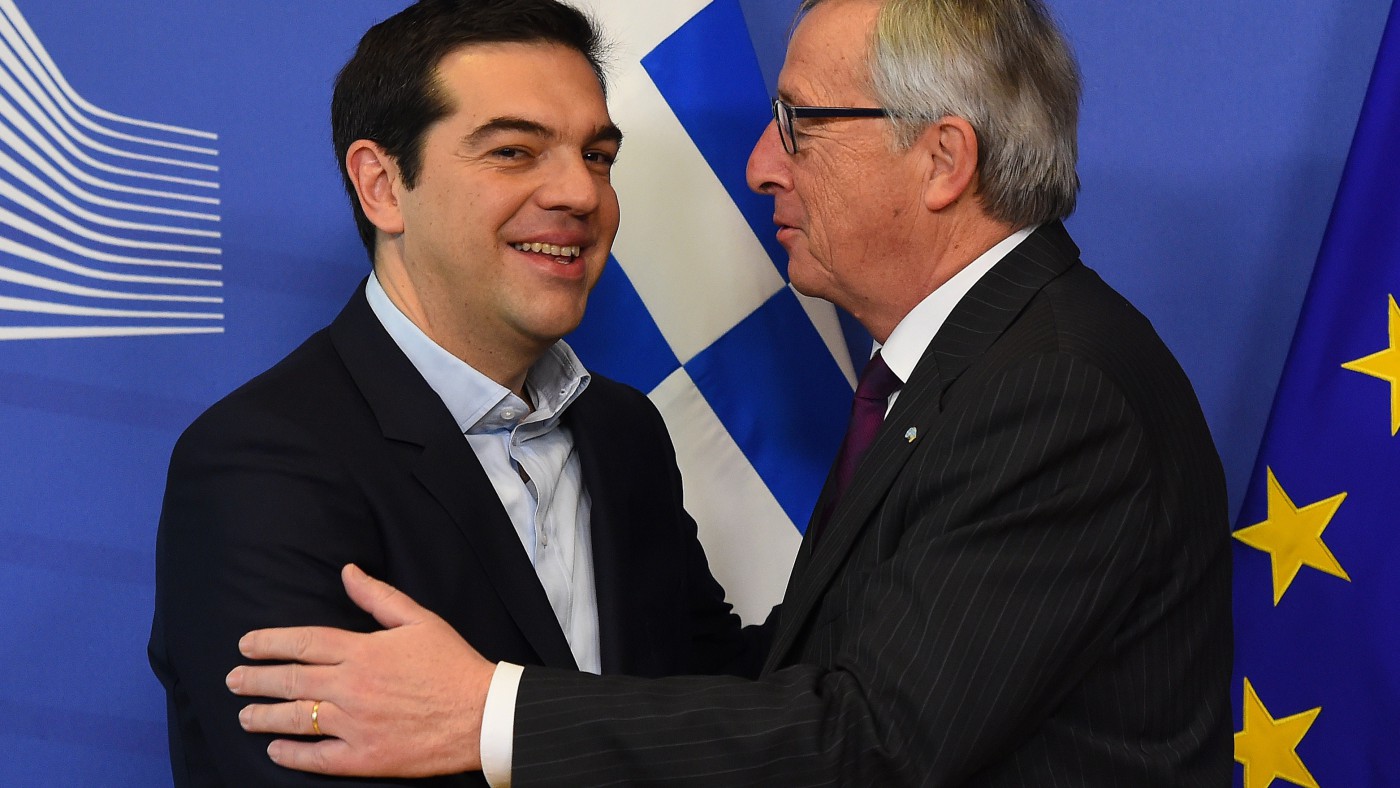At Friday’s Eurogroup there was a deal. Or, perhaps more accurately, there was a deal (on Friday) about making a temporary deal (on Monday) in advance of a full deal (in June).
On the face of it, the deal involves a total capitulation by the Greeks on every point. Even the “concessions” they got were merely those they were offered from the beginning — the main one of which was that their Eurozone partners would take into account Greece’s economic circumstances in setting its fiscal targets for 2015.
They capitulated on applying for an extension of the programme they’d declared dead. They capitulated on the use of the remaining bank recapitalisation funds (which will be returned to the EFSF instead of being used in Greece). They capitulated on receiving continued oversight from the EU, ECB and IMF — the Artists Formerly Known as Troika, as one wag had it. They (kind of) capitulated on there being no unilateral roll-back of the previous structural reforms Syriza hated and promised to reverse, insofar as such roll-backs would threaten Greece’s ability to repay its debts, with the agreed text including the crucial addition “as assessed by the institutions” — i.e. it won’t be for the Greek uber-Keynesians and neo-Marxists to decide what does or does not threaten “fiscal targets, economic recovery or financial stability”. (But there is a proviso here we’ll come back to.)
They had applied for a six-month extension, but only got four months, which is important because that takes us only to June and means any new programme will need to be agreed before Greece’s two big ECB bond repayments fall due in July and August. So there will need to be a new full deal in June, otherwise Greece’s euro membership is right back to the precipice it was clinging to on Thursday.
One wonders how Syriza MPs back in Greece will react to such total surrender. Can the deal stick? It could unravel very quickly indeed. For a number of the key details of the deal remain to be agreed on Monday. In particular, Greece has to submit a list of the new measures it wants to introduce and changes it wants to make to the previously agreed programme between now and June. The I Can’t Believe It’s Not Troika will need first to decide very quickly whether this list forms “a valid starting point for a successful conclusions of the review” and then further measures will be agreed by the end of April. If it says no — and Greece may yet ask for something unacceptable — then, as Varoufakis puts it, “we’re finished”.
In principle, Syriza could use this list as an opportunity to exchange some elements of the previously agreed programme for some new reforms to its own taste (as I explained here that it had proposed before). So to that extent Syriza can reasonably claim that it has secured some of what it wanted (though, as with the fiscal targets for 2015, there was probably never much doubt that that could have been secured without any need of the name-calling and show-boating of the past three weeks).
My guess is that quite a few Syriza members will regard all this as a sell-out. Some may even break away and start calling openly for a referendum on the deal, on Greece’s euro membership, or both. But if it wants to, and if it is willing to be supported by MPs from the previous New Democracy-led government, Syriza’s leadership could surely get this new deal through Parliament without a referendum.
But how long could a Syriza government last, then? Having secured nothing it would not have got anyway without playing so pretend-tough, the purpose of a Syriza government revolves around its ability to swap measures under Don’t Call Me Troika supervision and whatever it can secure in the new longer-term deal in June. I suspect that won’t seem nearly enough to Syriza’s impatient neo-Marxists and ultra-greens. I would assume they will have either a referendum or a new General Election on the new deal in June. Greece’s surrender may not be nearly so abject next time – and next time is not far away.


